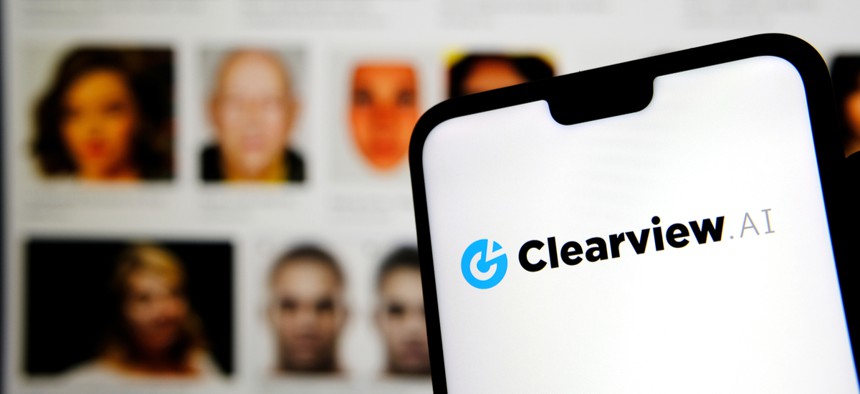Senator Questions How Clearview AI’s Facial Recognition Tech is Put to Use on Protesters

Ascannio/Shutterstock
Sen. Ed Markey sent his latest letter to the company this week.
Sen. Ed Markey, D-Mass., on Monday asked Clearview AI CEO Hoan Ton-That whether the facial recognition-focused startup was willing to prohibit law enforcement agencies and other users from applying its technology to monitor peaceful protestors.
The question was one of nine included in the lawmaker’s fourth formal letter sent to the company this year. In it, Markey repeats some asks made in previous correspondences and ultimately aims to confront concerns sparked by reports that Clearview AI’s software is currently being put to use by law enforcement officials in U.S. cities enduring protests catalyzed by George Floyd’s death in police custody in Minneapolis, Minnesota, on May 25.
“As demonstrators across the country exercise their First Amendment rights by protesting racial injustice, it is important that law enforcement does not use technological tools to stifle free speech or endanger the public,” Markey wrote.
The note is one of several sent by various lawmakers regarding how the government and police are technologically responding to ongoing, nationwide protests and unrest. Most recently, several Democrats on Friday wrote to the Homeland Security Department’s acting secretary addressing the use of a Predator B drone to surveil protesters in Minneapolis. And more than 30 members of Congress signed a letter Tuesday calling on the FBI, National Guard Bureau, Drug Enforcement Administration, and Customs and Border Protection demanding that they “cease any and all surveilling of Americans engaged in peaceful protests.” Further, a comprehensive police-reform bill introduced Monday, the Justice in Policing Act of 2020, also incorporates new provisions to limit law enforcement’s use of facial recognition.
Markey’s focus on Clearview AI, however, is not new.
The senator initially reached out in January after a New York Times report revealed that the company created an app that enables users to snap and upload a photo of any person’s face and then view public pictures of that same person—and that the company possesses a database of billions of personally identifying photos that hundreds of law enforcement officials reportedly used in the past year.
After sending an initial note about Clearview AI’s potential sale of biometric information, Markey followed up by inquiring how the startup processes data about children and its potential sales to foreign, authoritarian governments. In May, he sent another note questioning how its facial recognition software was being pitched to federal and state authorities to trace coronavirus patients amid the pandemic.
Though Clearview AI did reply to some of the senator’s calls, Markey notes in his latest correspondence that its “responses failed to allay [his] concerns.”
“In light of the ongoing protests and demonstrations across the country, I write with additional questions and to reiterate the need for your company to take urgent action to prevent the harmful use of its product,” he wrote. The letter also linked a recent report from BuzzFeed indicating that Clearview AI’s software is among the surveillance technologies the Minneapolis Police Department and nearby law enforcement entities at least previously accessed in recent months.
The senator makes a range of new and old asks in the new note. He starts by reiterating a previous ask that the company shares a list of its clients, which he said it “refused,” and then subsequently asks the startup to detail law enforcement agencies Clearview AI has marketed its assets to since May 25. He also calls for the inclusion of any new contracts with such entities that emerged since the date.
“In your May 15, 2020 response letter, you did not commit to submitting Clearview AI’s technology for an independent assessment of accuracy and bias by facial recognition experts, including testing for error rates for true negatives, false matches, and people of color, and publish the results of this assessment publicly,” Markey notes. “Given the concerns raised by civil liberties experts that false positives could lead to innocent protesters (especially women and people of color) being arrested or confronted by police, will you now commit to submitting Clearview AI to such an assessment?”
Markey also asks if the company has seen increased search traffic in recent weeks, for more information about the startup’s processes for engaging and vetting new clients, further details on its opt-out mechanism, and more.
The senator set June 22 as the deadline for response.






